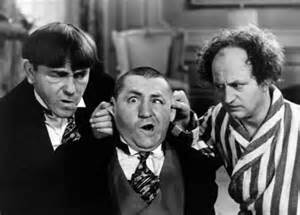If you want to look at the questions before you see the answers, go HERE. If you missed this weekend’s post on what not to do in response to a negative online review, it’s HERE.
HONOR ROLL
perfect scores in ORANGE
- Matt Anderson, Pratt Vreeland Kennelly Martin & White
- Lisa Campion, Gale & McAllister
- Laura Gorsky, Law Office of David Sunshine
- Robert Grundstein
- Keith Kasper, McCormick Fitzpatrick Kasper & Burchard
- Team Kruska & Lawrence, via Marsicovetere Law and Theriault & Joslin
- Beth Mann, Tepper Dardeck Levins & Mann
- Scott Mapes, Esq.
- Hal Miller, First American
- Scott Rowland, VLS Class of 2018
- Kane Smart, Downs Rachlin Martin
ANSWERS
Question 1
It’s Celebrate Pro Bono Week. For opportunities to provide pro bono services, contact Mary Ashcroft or Angele Court. In the meantime, which rule or rules are relaxed if an attorney provides short-term legal under the auspices of a nonprofit or court and without any expectation by the client or lawyer that the representation will continue?
- A. The trust accounting rules
- B. The rule requiring competent representation
- C. The conflicts rules. See, Rule 6.5 (remember, they are not so relaxed as to excuse actual knowledge of a conflict)
- D. The rule on record retention
Question 2
Prospective Client meets with Lawyer. Lawyer is not competent in the area of law in which Client needs representation. So, Lawyer refers Client to Attorney, a law school classmate who handles matters like Client’s. Lawyer and Attorney do not work in the same firm.
Attorney offers to pay Lawyer a referral fee. Assume that the conflicts rule would not have prohibited from Lawyer representing Client. Under which scenario is a fee sharing agreement most likely to comply with Vermont’s Rules of Professional Conduct.
- A. Total fee is reasonable, Client consents to the fee sharing arrangement, Lawyer & Attorney either assume joint responsibility for the representation or are paid in proportion to work actually performed. See, Rule 1.5(e) and this blog post from last week.
- B. Total fee is reasonable, Client consents to the fee sharing arrangement.
- C. Total fee is reasonable, Lawyer & Attorney either assume joint responsibility for the representation or are paid in proportion to work actually performed.
- D. Total fee is reasonable.
Question 3
How long must a lawyer keep records of funds held in trust?
- A. There is no affirmative requirement to maintain such records past the termination of the representation.
- B. 6 years from the termination of the representation. See, Rule 1.15(a)(1).
- C. 7 years from the termination of the representation
- D. The rules are silent, case law suggests at least 6 years from the termination of the representation.
Question 4
Oh, given the season, I’m reminded of this question.
Attorney and Client enter into a limited representation agreement pursuant to Rule 1.2(c). The representation is limited to Attorney drafting a pleading for Client. Both Attorney and Client understand that Client will file the pleading without disclosing to the Court or the adverse party that Client received assistance from Attorney. What is the specific term used to describe Attorney’s act of drafting the pleading?
GHOSTWRITING. You can review ABA Advisory Ethics Opinion 07-446 . It sets out the arguments against providing undisclosed legal assistance, then rebuts each of them. For those of us in the 2nd Circuit, see THIS DECISION.
Question 5
In August, I blogged on the ethics violations committed by the lawyers in HBO’s summer hit The Night Of. Well, looks like Amazon is out to top HBO. Earlier this month, Amazon rolled out a new show called Goliath. The lead character is Billy McBride. Billy is an lawyer, who, among other things:
- spends his day drinking at a bar;
- knows that his legal assistant moonlights as a prostitute;
- steals a client from another lawyer;
- sleeps with the client before doing any legal work for her;
- files a wrongful death suit on behalf of client;
- against a defendant that is represented by Cooperman McBride, a firm that he founded and that continues to bear his name; (oh, and his ex-wife still works there)
- spends a night in jail after fighting a police officer and, as a result, misses a hearing on defendant’s motion to dismiss;
- effectively bribes a court staffer to bring the case back to life even though the judge dismissed it after Billy failed to show for the motion hearing; and
- is held in contempt at the subsequent hearing.
And, so far, I’ve only watched Episode 1 and the first 10 minutes of Episode 2!
Your task: name the famous actor who plays Billy McBride.
BILLY BOB THORNTON






